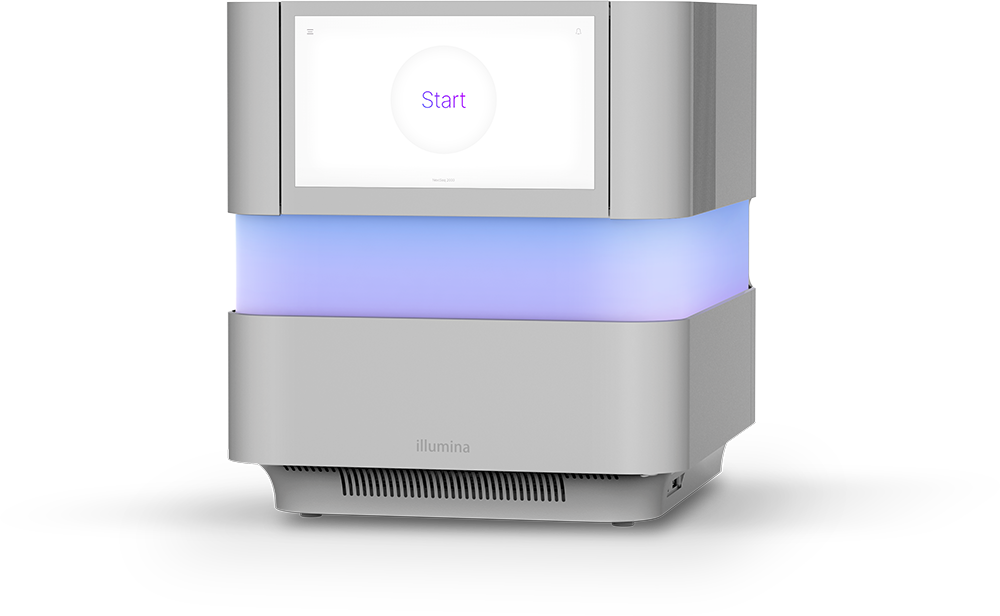NextSeq 1000/2000 Training
-
Overview
-
-
Introductory Topics
DATE/
LENGTH -
NextSeq 1000/2000: How to Start a Run
This course introduces the steps to start a NextSeq 1000/2000 sequencing run.
20 min
-
Sequencing Analysis Viewer (SAV): A Beginner's Guide
Recorded Webinar (December 2020) | The Sequencing Analysis Viewer (SAV) Software is an application where users can view important quality metrics generated during sequencing runs. This webinar will provide a guided tour for beginners on how to use SAV, as well as tips and tricks for reviewing the most useful information for sequencing runs. This webinar is targeted at new users and will go over the following topics: how to load data into SAV, what metrics are available in each tab of the software, and understanding which are the most valuable metrics for run review and where to find them.
-
Sequencing: Introduction to Sequencing By Synthesis (SBS)
Recorded Webinar (January 2021) | Illumina next-generation sequencing technology allows for massive parallel sequencing. Illumina Technical Support invites you to join us for a presentation and discussion on sample preparation, cluster generation and sequencing by synthesis chemistry. This webinar is targeted to those new to next-generation sequencing and will discuss the following topics: Illumina library construction, cluster generation methods by platform, sequencing by synthesis, and multiplexing and primary analysis.
-
Instruments & Software
DATE/
LENGTH -
Diagnosing Suboptimal Clustering in Patterned Flow Cells
Although over clustering is not possible on patterned flow cell, loading a library with a suboptimal concentration negatively impacts run data. This video discusses preventing and diagnosing common clustering issues on patterned flow cells.
5 min
-
Discover the Benefits of Illumina Proactive
Learn about the benefits of instrument performance monitoring through Illumina Proactive, a service in which instrument performance data are sent to Illumina to enable proactive maintenance.
10 min
-
Optimal Cluster Density Best Practices
This video discusses optimal cluster density and how over and under-clustering can affect your sequencing data. It also examines common clustering issues and ways to prevent them.
10 min
-
Library Prep
DATE/
LENGTH -
Illumina DNA Prep (formerly Nextera DNA Flex): Introduction
Recorded Webinar (January 2022) | IIllumina Technical Support invites you to join us for an introductory presentation on the new Illumina DNA Prep kit, formerly known as Nextera DNA Flex. This webinar is geared towards new and intermediate users with a basic knowledge of next generation sequencing. This session covers sample to library workflow, and tips for a successful library prep.
-
Illumina DNA Prep with Enrichment (formerly Nextera DNA Flex for Enrichment): Introduction
Recorded Webinar (August 2020) | Join us to learn more about our newest and most efficient enrichment workflow – Illumina DNA Prep with Enrichment, formerly known as Nextera Flex for Enrichment. This webinar is for users that are interested in targeted sequencing using enrichment with fixed and custom gene panels, as well as for current users of Illumina enrichment workflows to learn and compare the benefits Illumina DNA Prep with Enrichment offers. We discuss the improved enrichment workflow used in Illumina DNA Prep with Enrichment, the unique features of Illumina DNA Prep with Enrichment, and useful tips for a successful library prep.
CORRECTION: There is an update for low minor allele frequency (somatic variant) detection. Illumina has validated only 1-plex pooling for somatic variant detection. If you would like to pool above 1-plex for this application, you will need to validate the performance of higher plexity pooling.
-
Preventing Contamination
Many next-generation sequencing applications use the Polymerase Chain Reaction, or PCR, for DNA amplification. This video presents best practices to minimize the potential for PCR contamination in your experiment.
10 min
-
Data Analysis
DATE/
LENGTH -
Illumina DRAGEN Bio-IT Platform: Technology Overview
This course describes the benefits of using the DRAGEN Platform for secondary analysis of sequencing data, provides an introduction to the technology, and lists available pipelines.
Languages: Japanese
10 min
-
Diagnosing Suboptimal Clustering in Patterned Flow Cells
Although over clustering is not possible on patterned flow cell, loading a library with a suboptimal concentration negatively impacts run data. This video discusses preventing and diagnosing common clustering issues on patterned flow cells.
5 min
-
Illumina DRAGEN Bio-IT Platform: Ultra-Rapid Analysis of Next-Generation Data
Recorded Webinar (November 2019) | The Illumina DRAGEN (Dynamic Read Analysis for GENomics) Bio-IT Platform utilizes Field-Programmable Gate Array (FPGA) hardware in combination with efficiently written software to provide highly-accurate analysis of next-generation sequencing (NGS) data in a fraction of the time required with traditional CPU-based methods. The DRAGEN platform is a cost-efficient analysis solution that is easily scalable between analyzing small and very large sequencing data sets. This webinar is intended for users of DRAGENon-site servers with working knowledge of the Linux command line. In this webinar, we will discuss the following topics: Building reference hash tables and the various advanced options available; Recommended best practices for data input and output withDRAGEN on-site servers; Description of different types of variant calling available for the Germline pipeline, and; Demonstration of Germline variant calling with advanced options.
